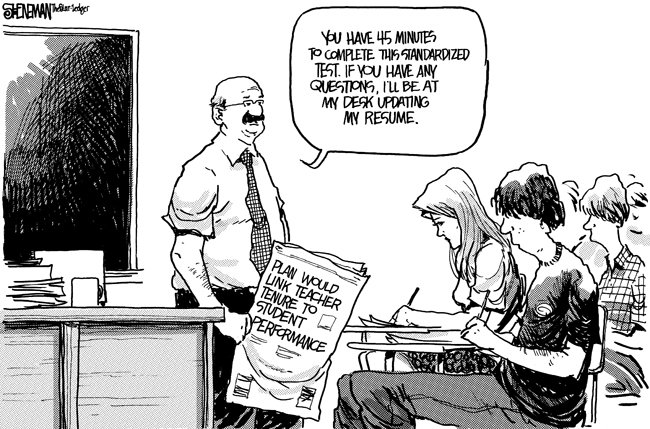Should Supreme Court Lose Tenure Along with Academic Faculty?
 Owning a company means being your own boss, for a lifetime if all goes well. Kings and popes and dictators and supreme court justices fit this mold. Long-terms strategies can be attended to. Political machines can keep one party in power for decades. Teams of loyal and obedient workers are put into place. Everyone knows what to do–and to expect.
Owning a company means being your own boss, for a lifetime if all goes well. Kings and popes and dictators and supreme court justices fit this mold. Long-terms strategies can be attended to. Political machines can keep one party in power for decades. Teams of loyal and obedient workers are put into place. Everyone knows what to do–and to expect.
Working in an organization is different. Bosses can change frequently and unexpectedly, and they aren’t all wise and fair-minded. Vagaries show up that aren’t logical. We all know how elections change the “personnel” in various cabinets. A new party in power installs its own operatives. Out goes one party, in comes another.
Same holds for newly installed executives as well. Sure, some employees are retained on what appears to be merit: they have experience, clout, and expertise that transcends “team playing” concerns about loyalty.
Most people hold strong opinions about faculty tenure. A political filter can focus on faculty as lazy, incompetent, and union-protected, for example–not giving the student-as-customer the experience they expect. But evaluative terms like best for faculty always depend on who’s using them, don’t they?
In “The Troubling Plight of the Modern University,” Victor Davis Hanson warns that publicly stated “information” about higher education is more apt to be political than honest: “Universities are the least transparent of U.S. institutions, defending protocols more secretive than those of the Swiss banking system. Few colleges publish the profile of those students who were favored in the admission process through legacies, athletic prowess, or race and gender preferences. The result is that almost no one knows why one student gets into Yale or Stanford and another with a far more impressive academic record does not.” Hidden agendas rule, but are unknown to most.
 In US education, liberals are in power, conservatives out. Being hired and fired is, accordingly, very logical. Hanson says that “Conservative speakers are now routinely disinvited from commencement addresses. Students or faculty members who offer public skepticism about gay marriage or unfettered abortion, voice pro-Israel sentiments or express doubts about man-caused global warming can easily earn campus pariah status.”
In US education, liberals are in power, conservatives out. Being hired and fired is, accordingly, very logical. Hanson says that “Conservative speakers are now routinely disinvited from commencement addresses. Students or faculty members who offer public skepticism about gay marriage or unfettered abortion, voice pro-Israel sentiments or express doubts about man-caused global warming can easily earn campus pariah status.”
The US Supreme Court was originally formulated to achieve balance of power at the highest levels of government. Justices needed to be independent interpreters of the Constitution, regardless of political change. So why does the president appoint those who promise to have an unswerving ideological bent? Why do individual judges get to “legislate from the bench” and quirkily overturn just about anything that has been hard won over decades and centuries?
Should the winds of political change be allowed to sweep away an educational legacy that has been far superior to the vacuous good-tasting, eye-catching models that drive business profits ever forward?
 Owning a company means being your own boss, for a lifetime if all goes well. Kings and popes and dictators and supreme court justices fit this mold. Long-terms strategies can be attended to. Political machines can keep one party in power for decades. Teams of loyal and obedient workers are put into place. Everyone knows what to do–and to expect.
Owning a company means being your own boss, for a lifetime if all goes well. Kings and popes and dictators and supreme court justices fit this mold. Long-terms strategies can be attended to. Political machines can keep one party in power for decades. Teams of loyal and obedient workers are put into place. Everyone knows what to do–and to expect. In US education, liberals are in power, conservatives out. Being hired and fired is, accordingly, very logical. Hanson says that “Conservative speakers are now routinely disinvited from commencement addresses. Students or faculty members who offer public skepticism about gay marriage or unfettered abortion, voice pro-Israel sentiments or express doubts about man-caused global warming can easily earn campus pariah status.”
In US education, liberals are in power, conservatives out. Being hired and fired is, accordingly, very logical. Hanson says that “Conservative speakers are now routinely disinvited from commencement addresses. Students or faculty members who offer public skepticism about gay marriage or unfettered abortion, voice pro-Israel sentiments or express doubts about man-caused global warming can easily earn campus pariah status.”